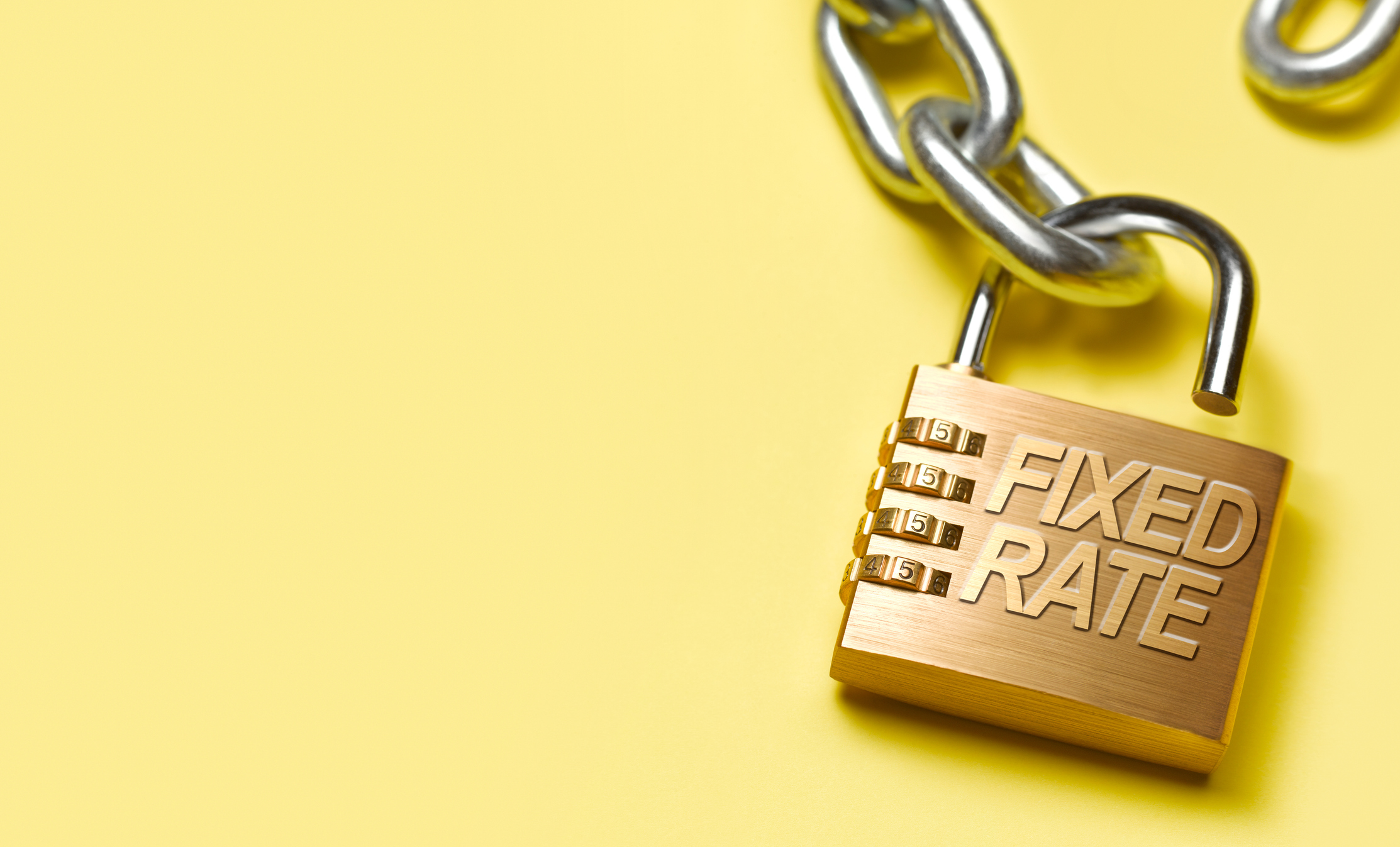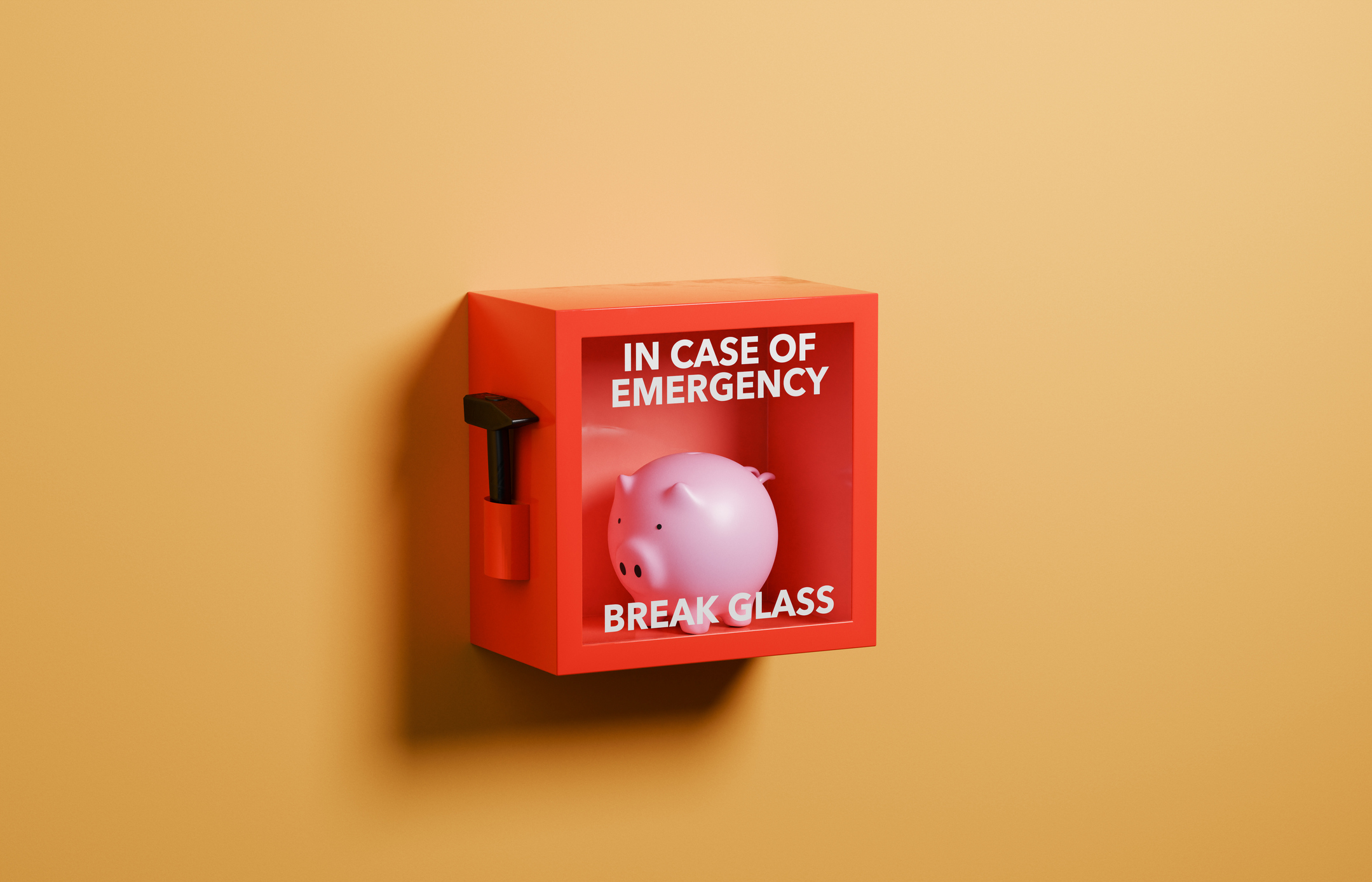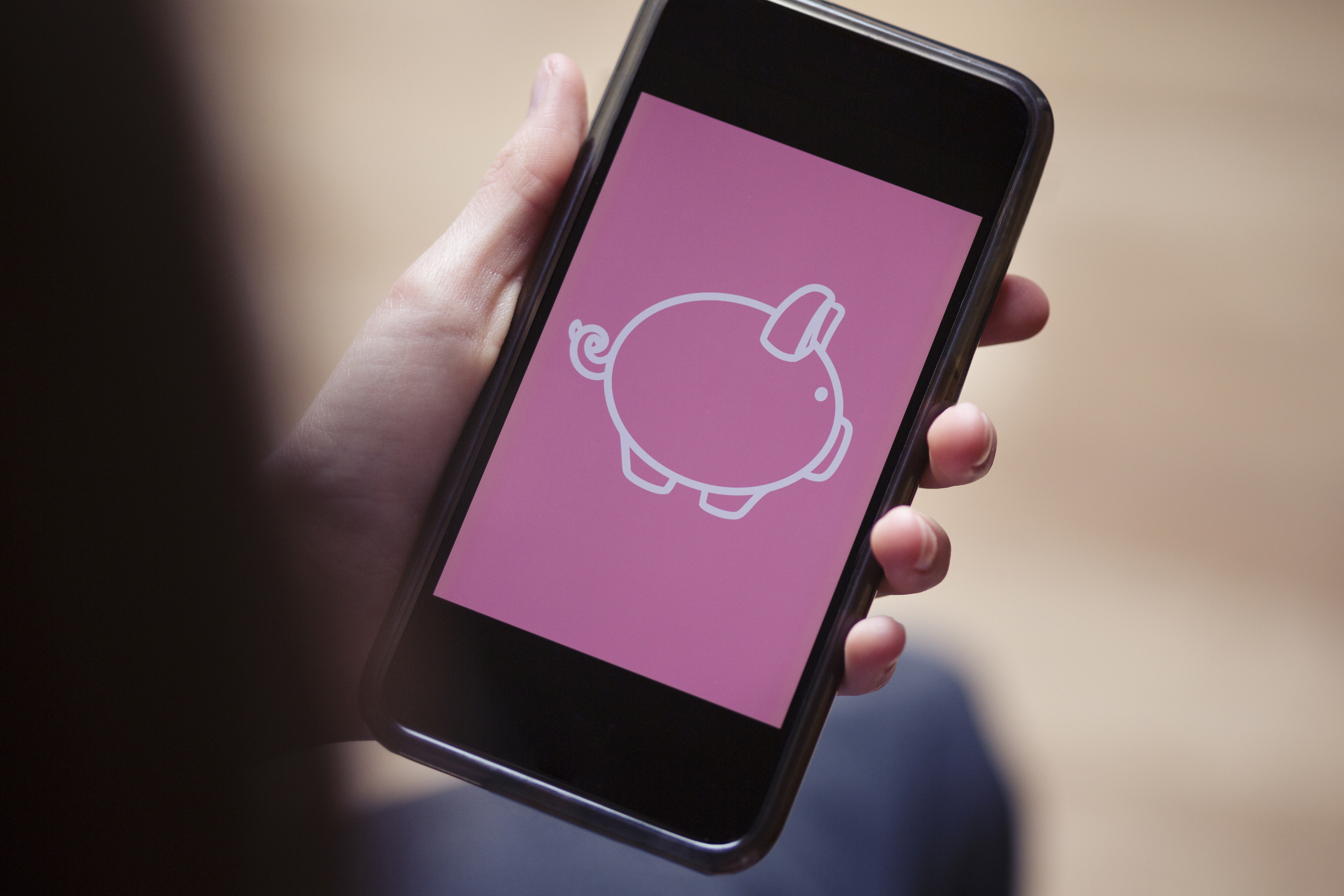Where to Move Your Money Before the Next Fed Meeting
Savings rates remain high for now. But with the Fed likely to cut rates later this year, it's time for savers to lock in rates now.

Sean Jackson
Profit and prosper with the best of Kiplinger's advice on investing, taxes, retirement, personal finance and much more. Delivered daily. Enter your email in the box and click Sign Me Up.
You are now subscribed
Your newsletter sign-up was successful
Want to add more newsletters?

Delivered daily
Kiplinger Today
Profit and prosper with the best of Kiplinger's advice on investing, taxes, retirement, personal finance and much more delivered daily. Smart money moves start here.

Sent five days a week
Kiplinger A Step Ahead
Get practical help to make better financial decisions in your everyday life, from spending to savings on top deals.

Delivered daily
Kiplinger Closing Bell
Get today's biggest financial and investing headlines delivered to your inbox every day the U.S. stock market is open.

Sent twice a week
Kiplinger Adviser Intel
Financial pros across the country share best practices and fresh tactics to preserve and grow your wealth.

Delivered weekly
Kiplinger Tax Tips
Trim your federal and state tax bills with practical tax-planning and tax-cutting strategies.

Sent twice a week
Kiplinger Retirement Tips
Your twice-a-week guide to planning and enjoying a financially secure and richly rewarding retirement

Sent bimonthly.
Kiplinger Adviser Angle
Insights for advisers, wealth managers and other financial professionals.

Sent twice a week
Kiplinger Investing Weekly
Your twice-a-week roundup of promising stocks, funds, companies and industries you should consider, ones you should avoid, and why.

Sent weekly for six weeks
Kiplinger Invest for Retirement
Your step-by-step six-part series on how to invest for retirement, from devising a successful strategy to exactly which investments to choose.
Savers might have a little more time at the start of the year to lock in a great interest rate. Ahead of the Federal Reserve meeting next week, many economists forecasts the central bank will pause rate cuts this month.
When the Fed cuts interest rates, debt with variable rates including credit cards, adjustable-rate mortgages, HELOCs and some private student loans can become cheaper to service and pay off.
The downside is that if the Fed reduces rates again in the future, we will likely see another slight dip in the highest savings rates.
From just $107.88 $24.99 for Kiplinger Personal Finance
Become a smarter, better informed investor. Subscribe from just $107.88 $24.99, plus get up to 4 Special Issues

Sign up for Kiplinger’s Free Newsletters
Profit and prosper with the best of expert advice on investing, taxes, retirement, personal finance and more - straight to your e-mail.
Profit and prosper with the best of expert advice - straight to your e-mail.
Now is the time to make decisions about your short-term savings goals and where to grow your money. Remember that the longer you wait, the smaller the opportunity you have at maximizing saving returns.
Here is where you should consider parking your cash before rates get any lower:

Certificates of deposit (CDs)
CDs are an effective, reliable way to earn guaranteed returns of over 4%. Many banks offer 5-year CDs with rates exceeding 4%, and some 1-year CDs offer rates a little higher.
Read Four CDs to Check Out Before a Fed Rate Cut to get recommendations from Kiplinger's staff.
The other benefit to CDs is the rate you lock in is the rate you'll have throughout the term. If you get a CD now and the Fed cuts rates sometime down the road, that won't impact you because it is a fixed interest rate.
With this in mind, use this tool from Bankrate to find some of the top-earning CD rates:
The biggest potential drawback is the penalties you might incur if you cash in your CD prior to maturity. If you are apprehensive about locking up your money, you can buy a no-penalty CD and avoid angst and fees.
These CDs usually pay slightly lower rates to offset the bank's risk of early redemption. Otherwise, this FDIC-insured savings opportunity is the best place to park your cash as rates come down.

Money market accounts
Money market accounts combine the best features of savings and checking accounts. You earn a higher rate than a traditional savings account but retain access to the funds with check-writing privileges and/or debit cards. The interest rate on these accounts is variable and can go down or up after you open the account.
Here are our five top picks:
Account | APY | Min. Opening Deposit |
|---|---|---|
4.25% | $100 | |
4.10% | $1,000 | |
3.90% | $1,000 | |
3.77% | $100 | |
3.75% | $50 |
Accessibility to your funds is why I highly recommend these types of accounts to hold your emergency funds. You can easily pay your mortgage, car insurance or medical bills if a financial emergency arises, without fear of incurring fees for removing some of your money.
However, watch out for the minimum balance requirements that are common for money market accounts. Many accounts have minimum balance requirements to open an account and a minimum closing daily balance.
To avoid these fees, crunch the numbers, and if you're on track to drain your emergency fund, close the account and cut your losses before the fees accumulate.

High-yield savings accounts
All savings accounts earn interest. The amount of interest depends on which account you choose. A traditional savings account averages only a 0.42% annual percentage yield (APY).
In comparison, the APYs on top high-yield savings accounts are around 4%, according to Bankrate.com.
That's why I recommend high-yield savings accounts for everyone regardless of the Fed rate; even if rates fall in the future, a high-yield account will still be one of the best and safest places for your savings.
The two most significant downsides of high-yield accounts are monthly fees and variable interest rates, but there are ways to mitigate those drawbacks. We can recommend at least 10 no-fee high-yield accounts that are currently paying around 4%.
Whether overall rates increase or decrease, high-yield savings accounts with the best yields tend to outperform their competition consistently. Monitor the rate your account offers, and if you notice that your savings account is falling faster than others, consider shopping around for a better account.
If you need more encouragement to open a high-yield account, read Is It Worth Getting a High-Yield Savings Account Before the Next Fed Meeting?
Bottom line for savers
If CDs, high-yield accounts or money market accounts fit into your short-term savings goals, this is a good time to get them. The Fed is likely to continue cutting rates at its meeting this week, so you're running out of time to secure an excellent rate that outpaces the CPI inflation rate.
Related Content
Profit and prosper with the best of Kiplinger's advice on investing, taxes, retirement, personal finance and much more. Delivered daily. Enter your email in the box and click Sign Me Up.

Donna joined Kiplinger as a personal finance writer in 2023. She spent more than a decade as the contributing editor of J.K.Lasser's Your Income Tax Guide and edited state specific legal treatises at ALM Media. She has shared her expertise as a guest on Bloomberg, CNN, Fox, NPR, CNBC and many other media outlets around the nation. She is a graduate of Brooklyn Law School and the University at Buffalo.
- Sean JacksonPersonal finance eCommerce writer
-
 Dow Adds 1,206 Points to Top 50,000: Stock Market Today
Dow Adds 1,206 Points to Top 50,000: Stock Market TodayThe S&P 500 and Nasdaq also had strong finishes to a volatile week, with beaten-down tech stocks outperforming.
-
 Ask the Tax Editor: Federal Income Tax Deductions
Ask the Tax Editor: Federal Income Tax DeductionsAsk the Editor In this week's Ask the Editor Q&A, Joy Taylor answers questions on federal income tax deductions
-
 States With No-Fault Car Insurance Laws (and How No-Fault Car Insurance Works)
States With No-Fault Car Insurance Laws (and How No-Fault Car Insurance Works)A breakdown of the confusing rules around no-fault car insurance in every state where it exists.
-
 No-Fault Car Insurance States and What Drivers Need to Know
No-Fault Car Insurance States and What Drivers Need to KnowA breakdown of the confusing rules around no-fault car insurance in every state where it exists.
-
 7 Frugal Habits to Keep Even When You're Rich
7 Frugal Habits to Keep Even When You're RichSome frugal habits are worth it, no matter what tax bracket you're in.
-
 How Much It Costs to Host a Super Bowl Party in 2026
How Much It Costs to Host a Super Bowl Party in 2026Hosting a Super Bowl party in 2026 could cost you. Here's a breakdown of food, drink and entertainment costs — plus ways to save.
-
 3 Reasons to Use a 5-Year CD As You Approach Retirement
3 Reasons to Use a 5-Year CD As You Approach RetirementA five-year CD can help you reach other milestones as you approach retirement.
-
 How to Watch the 2026 Winter Olympics Without Overpaying
How to Watch the 2026 Winter Olympics Without OverpayingHere’s how to stream the 2026 Winter Olympics live, including low-cost viewing options, Peacock access and ways to catch your favorite athletes and events from anywhere.
-
 Here’s How to Stream the Super Bowl for Less
Here’s How to Stream the Super Bowl for LessWe'll show you the least expensive ways to stream football's biggest event.
-
 The Cost of Leaving Your Money in a Low-Rate Account
The Cost of Leaving Your Money in a Low-Rate AccountWhy parking your cash in low-yield accounts could be costing you, and smarter alternatives that preserve liquidity while boosting returns.
-
 This Is How You Can Land a Job You'll Love
This Is How You Can Land a Job You'll Love"Work How You Are Wired" leads job seekers on a journey of self-discovery that could help them snag the job of their dreams.